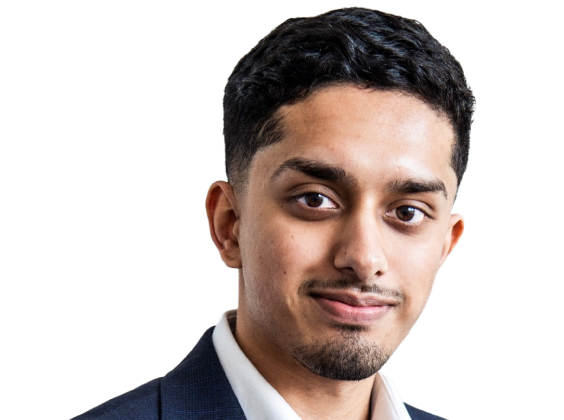
Written by

Cranfield, UK , 22.11.2023
Earlier this month, Georgia-based health system Emory Healthcare announced the launch of a pilot of AI-powered virtual inpatient monitoring in two of its hospitals in a collaboration with Andor Health. In the announcement, Emory Healthcare stated that the technology will support in providing additional safety for at-risk patients. The project has an initial plan to install Andor Health’s virtual sitting technology in an initial 32 patient rooms during the first year of the partnership, with a planned expansion to 50 additional rooms during the second year. The program involves Andor Health’s virtual observers working with registered nurses via a control centre, to utilize voice activation technology to provide 24/7 monitoring services and alerts to on-site staff.
The announcement marks yet another example of the growing uptake in virtual-sitting technology, and the growth in Andor Health’s customer-base, having announced a similar deployment at four hospitals within Florida-based health network Orlando Health in September and later incorporating Andor’s virtual hospital capabilities for virtual nursing, which we covered in a recent Signify Premium Insight. The company has also expanded its deployment Tampa General Hospital to incorporate its virtual hospital platform into inpatient settings having initially been used in its medical intensive care unit.
Tele-ICU capabilities have been a longstanding offering with Emory Healthcare with its eICU program launched in 2014, enabling intensivists and critical care nurses to provide continuous monitoring support. The program was also expanded to community hospitals in Southern Georgia. Emory Healthcare had also previously embarked on a partnership with Royal Perth Hospital and Philips to move night intensive care work to daytime staff in Australia by utilizing Philips’ eICU platform, thus reducing both clinician shortage burdens and burnout risk for night staffing within the US. The move to incorporate virtual sitting technology into its existing care delivery highlights the wider hospital sector’s trend towards adopting hybrid care delivery models and the increasing demand for enterprise-scale telehealth solutions.
The hardships faced by the US hospital sector may sound like a broken record, particularly in regard to workforce and financial constraints, however the use of virtual monitoring technology in ICU settings provides the opportunity to manage both operational costs and staffing pressures, with a single virtual attendant able to monitor multiple patients compared to traditional in person one-to-one sitting models. Essentially, widescale adoption of these technologies will tackle two birds in one stone.
Signify Research’s traditional market breakdown for high-acuity telehealth included two key components: Tele-ICU and episodic virtual clinical examinations, with tele-observation (and virtual nursing) considered the latest development within the market. Emory Healthcare’s pilot of this technology reaffirms this sentiment as hybrid care delivery models are being increasingly adopted. Even more nascent, is the use of AI and GPT within high-acuity telehealth. The virtual inpatient monitoring program deployed by Emory Healthcare utilizes Andor Health’s ThinkAndor solution, marketed heavily as leveraging OpenAI and ChatGPT capabilities and stated to support unlocking data stored in various systems, including ambient listening, real-time visualisation and detecting safety risks for patients.
Simplistic and error prone deployment of traditional audio-visual continuous monitoring platforms has led to issues with platforms being unable to decipher between normal and concerning behaviour resulting in situations of false positive or ‘nuisance alarms’. Even more concerning is the reverse issue of false negatives where dangerous patient activity may be missed. The use of algorithmic and machine learning models has the potential to increase accuracy of automated patient activity analysis in hospital rooms and ultimately improve care delivery.
Signify Research’s recent High-Acuity Telehealth Report 2023 considers the market to be under a period of renaissance, with the following graphic highlighting some of the key vendors, service providers and strategic trends currently in play.

Previously, growth within the tele-ICU and episodic virtual clinical examination segments has been considered slow and confined to the US, however the emergence of continuous monitoring applications of tele-observation and virtual nursing has reinvigorated life within the market. The development of generative AI and machine learning use-cases to reduce operational constraints and free both human and capital resources will only develop this further.
Within the US, the potentially significant financial rewards regarding virtual care reimbursement amidst the growing value-based care (VBC) environment has meant that failure to embrace virtual sitting technology may have larger financial implications that outweigh costs of implementing solutions in the first place. This is combined with the reality that health systems are at a point where incorporating such programmes are no longer a luxury, but an essential part of their care needs.
Away from the specific high-acuity telehealth market, hospitals and health systems have largely been limited in scaling pilot programmes and new care delivery technologies due to financial struggles, but also the allocation of time dedicated to training staff and adapting to new clinical workflows. Tele-observation platforms however allow for a much quicker relief from resource constraints and staffing limitations. Moving forward, it is forecast that we will continue to hear similar announcements as that of Emory Healthcare’s, as the popularity of virtual sitting and virtual nursing increases.
Related Research
Telehealth – High-Acuity – World – 2023
Signify Research’s report “Telehealth – High Acuity – World – 2023” builds on their 2022-edition and will provides a data-centric and global outlook of the market. The report blends primary data collected from in-depth interviews with healthcare professionals and technology vendors, to provide a balanced and objective view of the market.
About Hamir Harbham
Hamir joined Signify Research in 2022 as a Market Analyst within the Digital Health team. He holds a BSc in Economics having graduated from Loughborough University in 2022.
About the Digital Health Team
Signify Research’s Digital Health team provides market intelligence and detailed insights on numerous digital health markets. Our areas of coverage include electronic medical records, telehealth & virtual care, remote patient monitoring, high-acuity clinical information systems, patient engagement IT, health information exchanges and integrated care & value-based care IT. Our reports provide a data-centric and global outlook of each market with granular country-level insights. Our research process blends primary data collected from in-depth interviews with healthcare professionals and technology vendors, to provide a balanced and objective view of the market.
About Signify Research
Signify Research provides healthtech market intelligence powered by data that you can trust. We blend insights collected from in-depth interviews with technology vendors and healthcare professionals with sales data reported to us by leading vendors to provide a complete and balanced view of the market trends. Our coverage areas are Medical Imaging, Clinical Care, Digital Health, Diagnostic and Lifesciences and Healthcare IT.
Clients worldwide rely on direct access to our expert Analysts for their opinions on the latest market trends and developments. Our market analysis reports and subscriptions provide data-driven insights which business leaders use to guide strategic decisions. We also offer custom research services for clients who need information that can’t be obtained from our off-the-shelf research products or who require market intelligence tailored to their specific needs.
More Information
To find out more:
E: enquiries@signifyresearch.net
T: +44 (0) 1234 986111
www.signifyresearch.net
